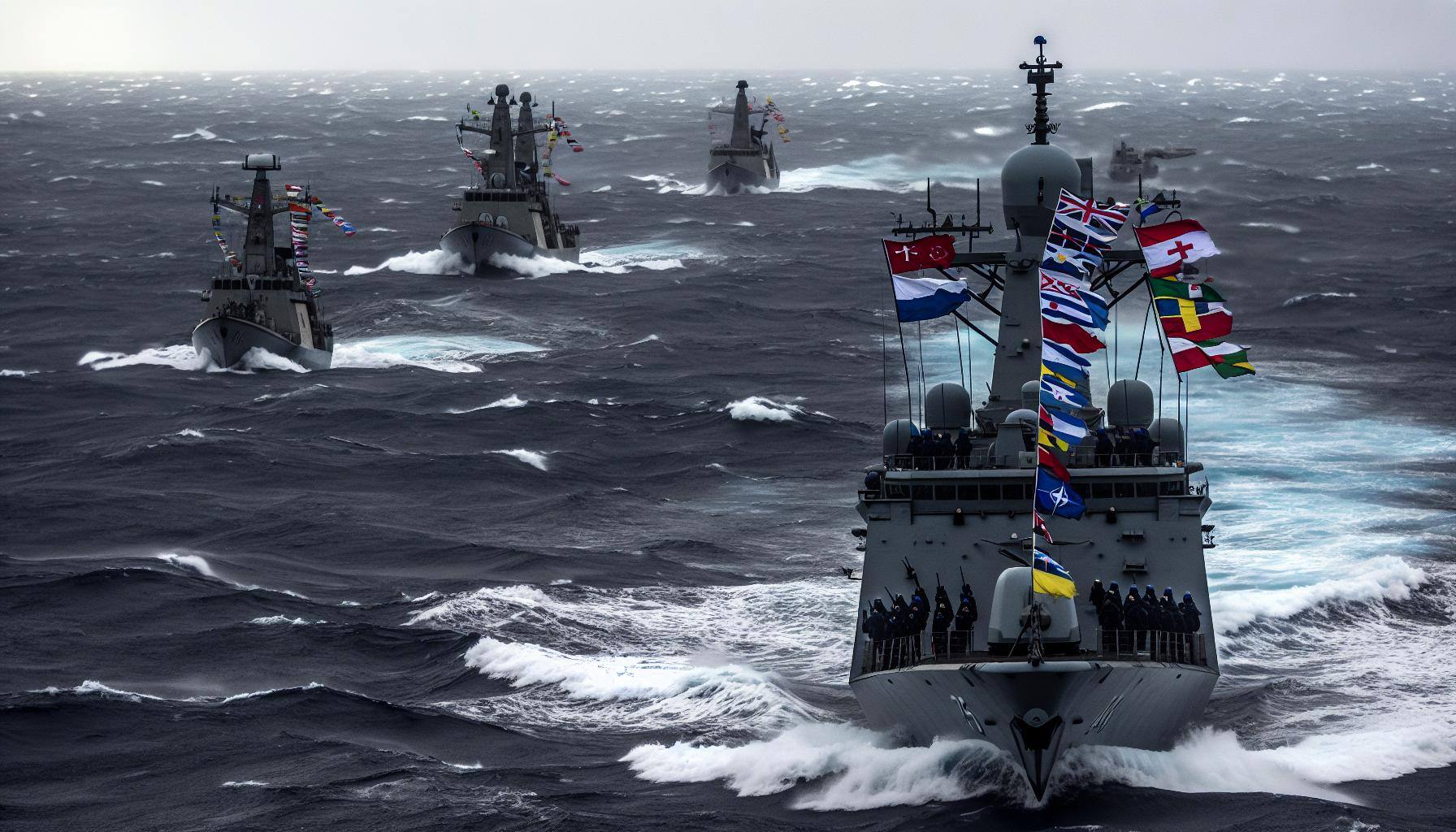The Houthis' anti-shipping activities in Yemen, involving the deployment of mines, UAVs, USVs, and missile strikes, pose significant threats to NATO member countries.
These attacks endanger maritime routes crucial for global trade and energy supplies, highlighting the Houthis’ role in irregular warfare and strategic competition influenced by China, Russia, and Iran. NATO, a defensive alliance focused on the security of its member states, must recognize and counteract these threats to safeguard its interests.
Geopolitical Significance of the Bab el-Mandeb Strait
The Houthis' control over Yemen's Red Sea coastline allows them to disrupt the Bab el-Mandeb Strait, a critical maritime chokepoint linking the Red Sea to the Gulf of Aden and the Arabian Sea. This strait is vital for the transit of oil, natural gas, and commercial goods between Europe, Asia, and the Americas. Despite being outside NATO’s traditional geographical limits, the strategic importance of this region for global trade and energy security is undeniable. Over 50 vessel attacks by the Houthis underscore the threat to these maritime routes, increasing shipping costs and insurance premiums, thereby affecting global commerce.
Energy Security Concerns
NATO countries heavily rely on the uninterrupted flow of oil and gas through the Bab el-Mandeb. Any significant disruption could lead to energy shortages and price spikes, exacerbating the volatility of global energy markets. This vulnerability has already impacted trade through the Suez Canal, which has seen a significant reduction. As a result, NATO navies, particularly from the US, France, and the UK, have intensified their presence in the region to secure these vital shipping lanes, diverting resources from other strategic priorities and leading to direct confrontations with Houthi forces, supported by Iran.
Strategic Alignment and Target Discrimination
The Houthis’ selective targeting of vessels highlights their strategic alignment with Iran, Russia, and China. They avoid attacking Iranian, Russian, and Chinese ships, focusing instead on vessels from NATO countries and their allies. Iran's support for the Houthis includes providing advanced weaponry and training, which emphasizes their mutual interests. Iranian intelligence vessels freely operating in Houthi-controlled areas further demonstrate their cooperation.
Broader Strategic Implications
Russia and China’s support for the Houthis is part of a broader strategy to challenge NATO and Western influence. Russia aims to weaken NATO cohesion and distract it from European security, leveraging instability to gain strategic advantages in regions like Sudan. Similarly, China benefits from disruptions to Western-aligned maritime routes, which hinder its strategic competitors and support its Belt and Road Initiative.
Future Threats and Strategic Countermeasures
Recent US intelligence indicates that Iran may direct the Houthis to supply weapons to al-Shabaab in Somalia, complicating the Western strategic response. This development necessitates an increase in naval presence and capabilities in the Red Sea and Gulf of Aden by NATO and its democratic allies, including potential involvement from Middle Eastern partners like Saudi Arabia.
The Houthi campaign also drives NATO innovation in countermeasures against threats such as UAVs, USVs, and missiles, pushing advancements in electronic warfare, missile defense, and mine detection technologies. However, this comes with the cost of adversaries like Iran, Russia, and China gaining insights and improving their own capabilities through close observation of Houthi activities.
Conclusion
The Houthis' anti-shipping activities in Yemen present a significant and multifaceted challenge to NATO. Ignoring the actions of this anti-Western axis could severely undermine Western strategic and economic interests. NATO must enhance maritime security, innovate technologically, and adopt comprehensive strategies to maintain global security and stability amidst these evolving threats.

Source: CEPA





